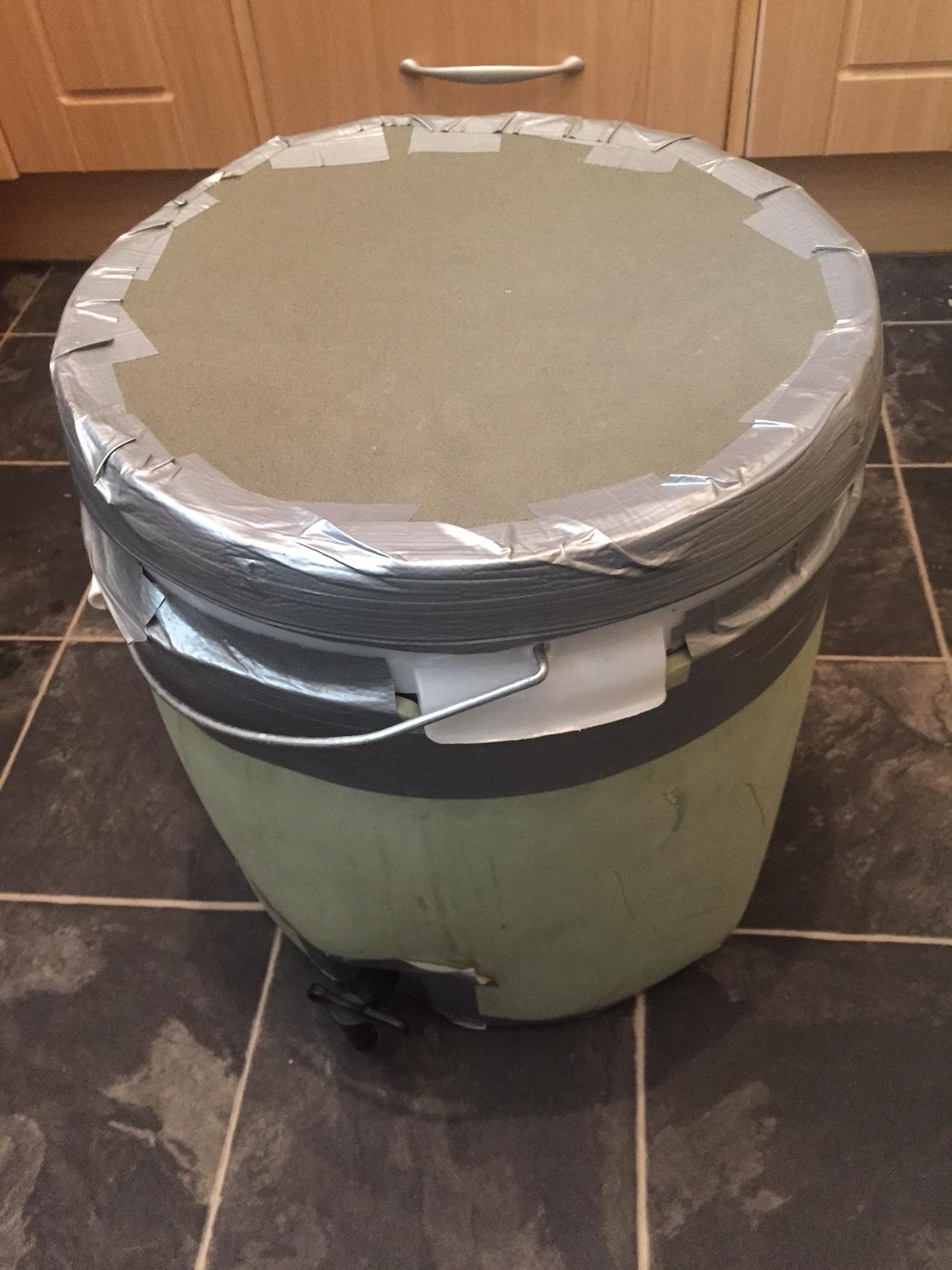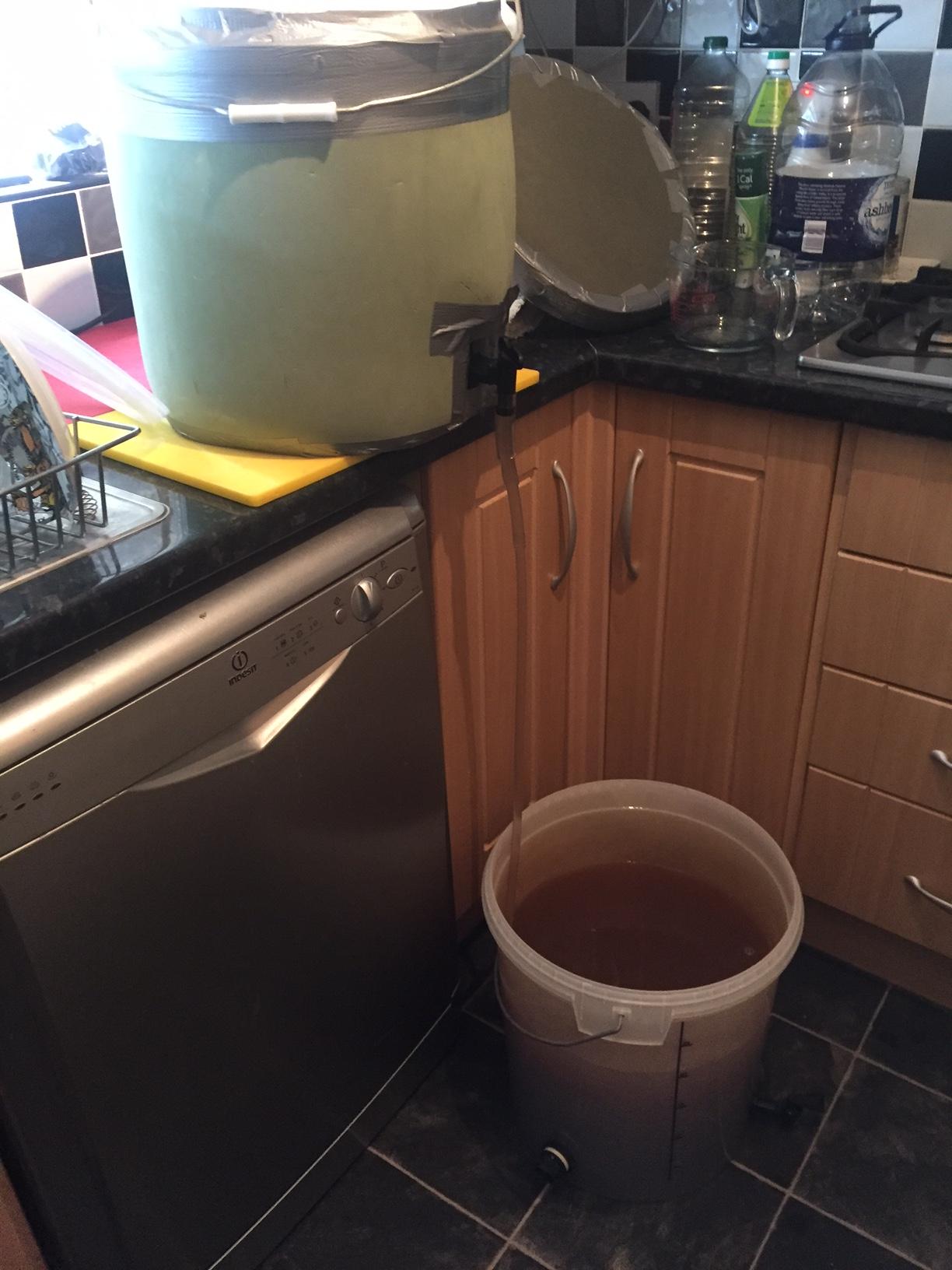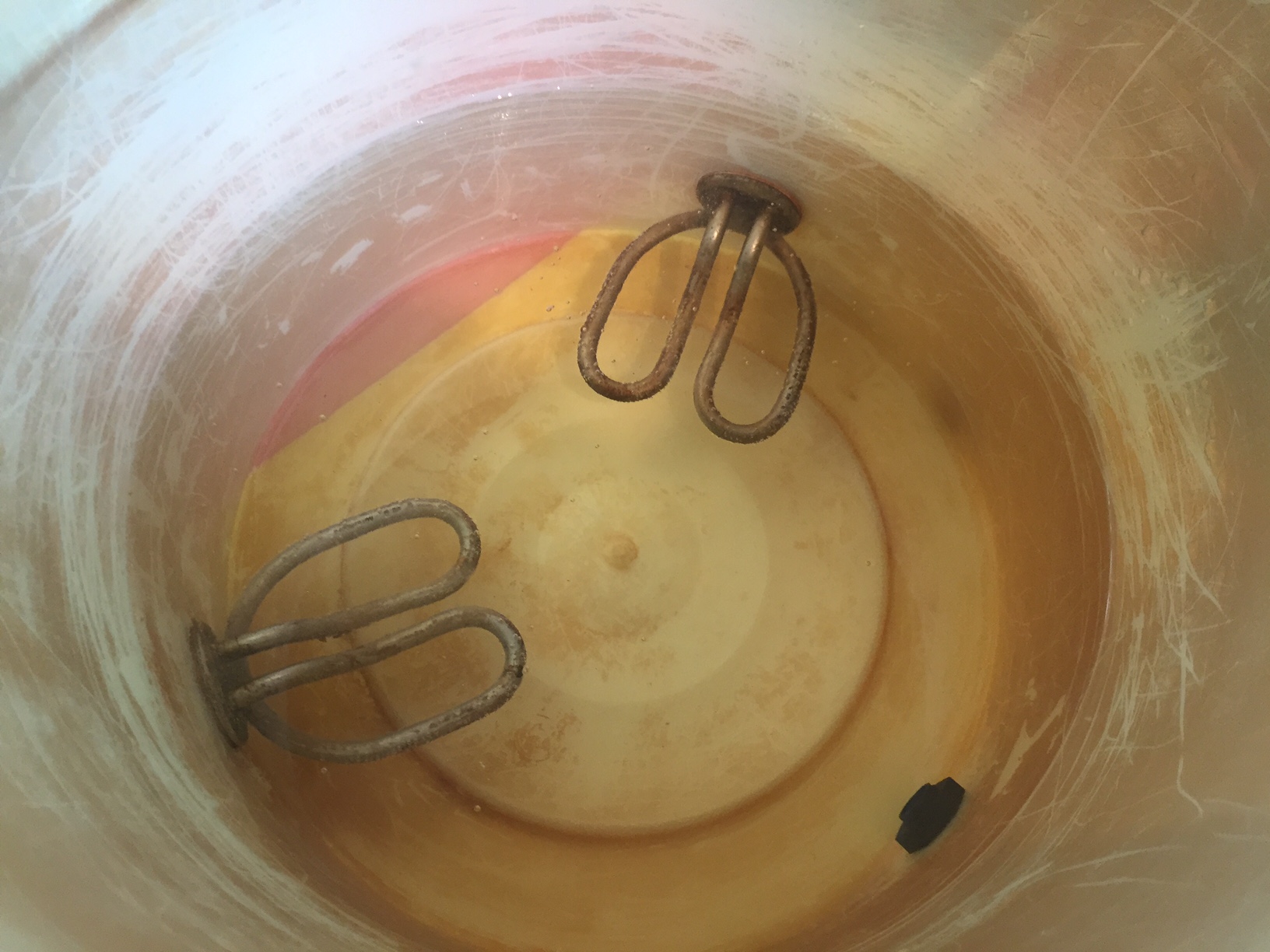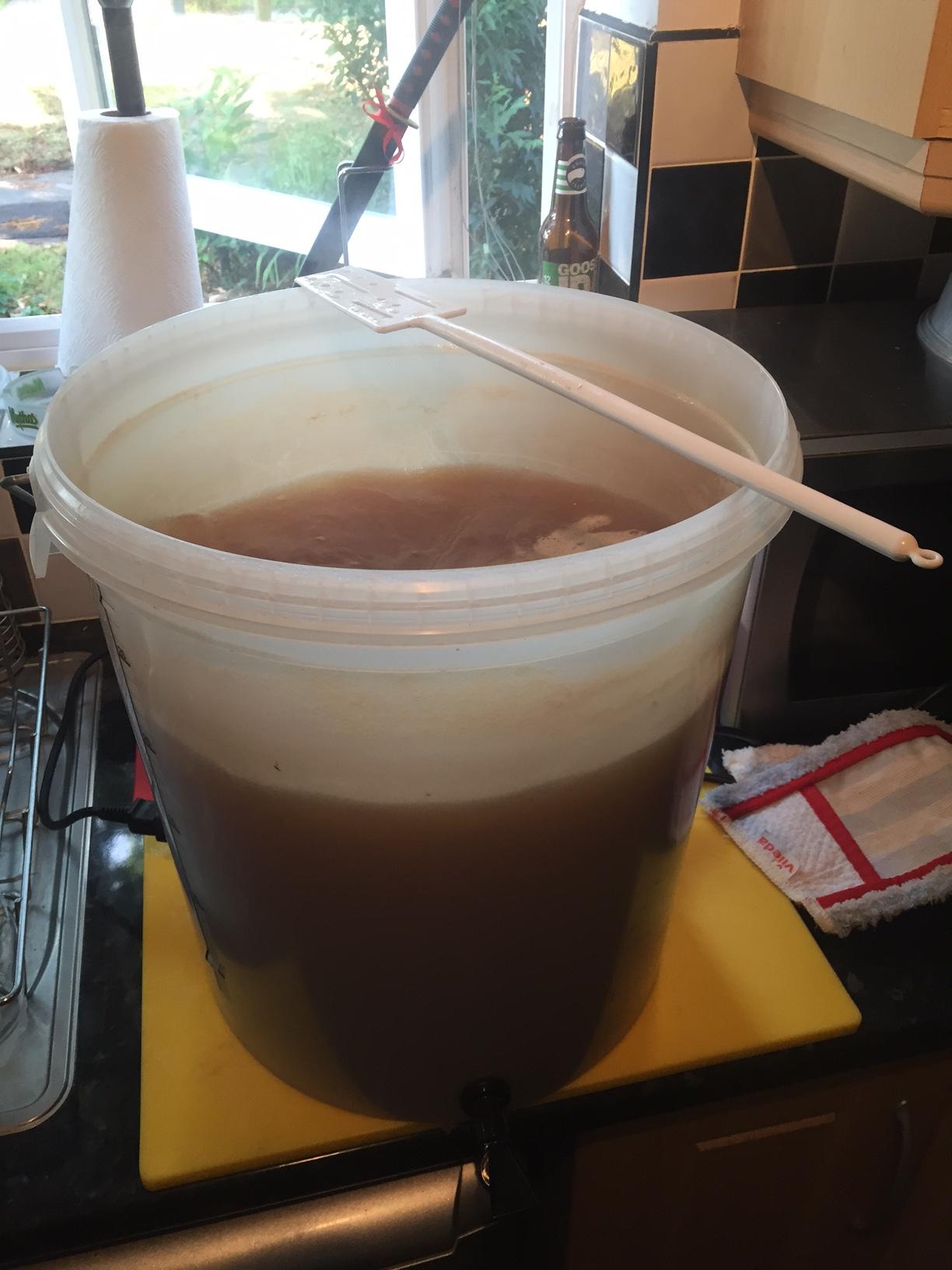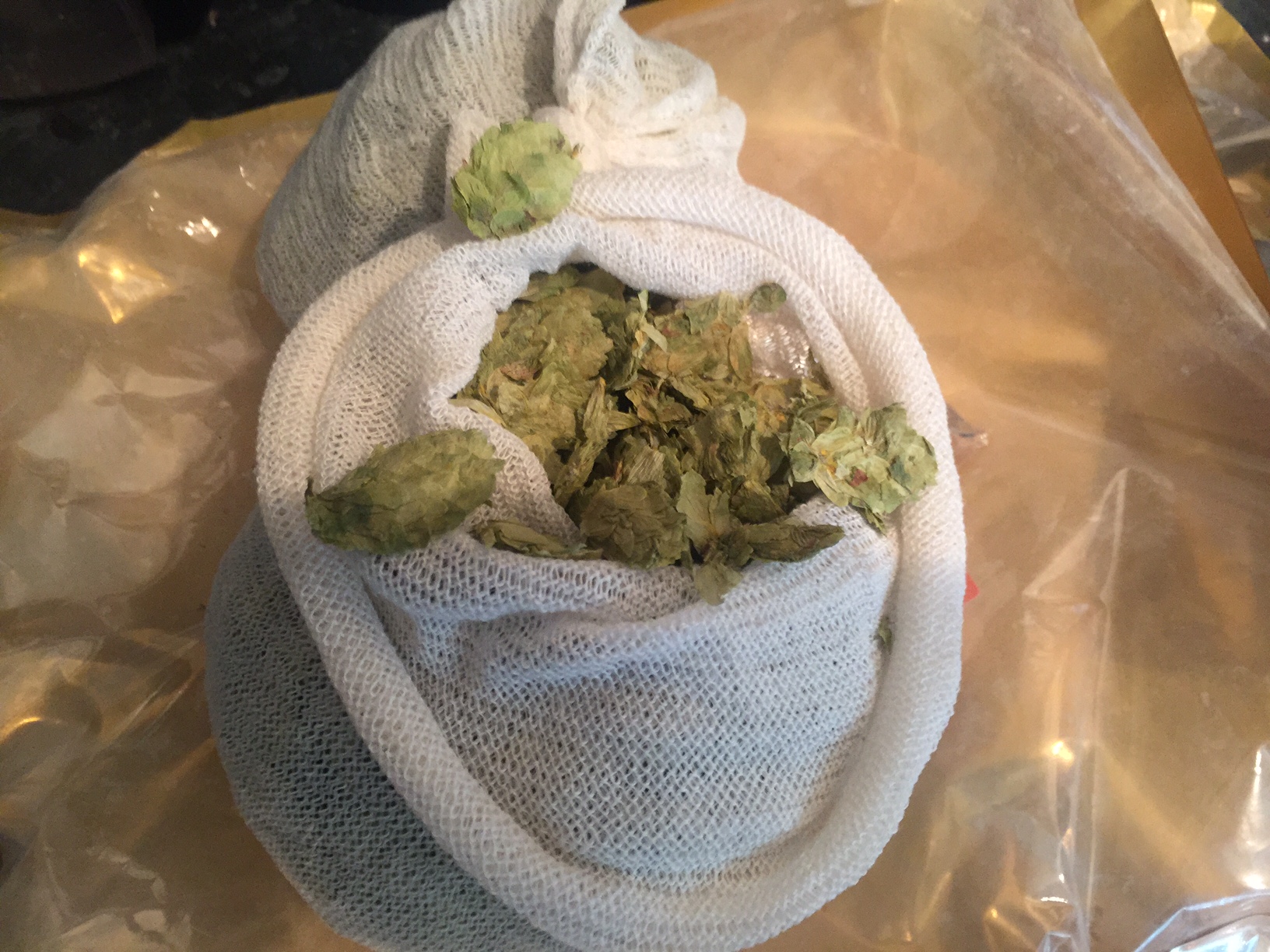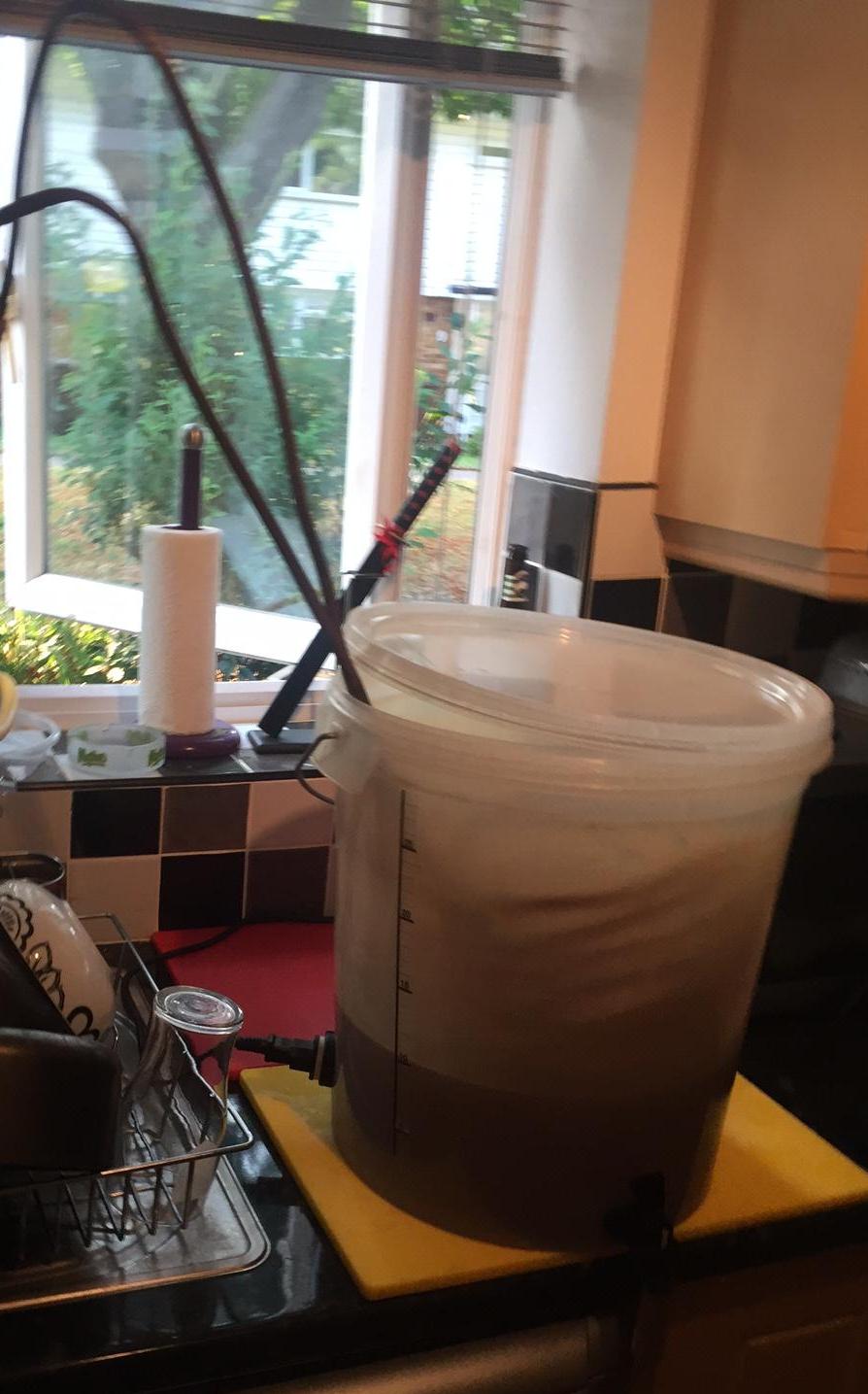Hi everyone, Been lurking on this forum for a couple of weeks now and it's been very helpful! :thumb:
I have recently been given a beer kit (Woodforde's Headcracker) and that has been bubbling away nicely in the bucket, bottling this weekend so fingers crossed it's good! Would of had 2 weeks in primary and will give it 2 weeks in the bottle with a little sugar.
I came across some kit on the cheap that should allow me to do a AG brew:
Bucket boiler (25l with headroom) - two kettle elements and a strainer
6gal stainless steel pot - debating to use the boiler bucket or this?
Mash tun (25l with headroom) - bucket with thick foam insulation surrounding, plastic/pipework false bottom
Standard 5gal fermenters
Copper immersion chiller
general kit (siphons, paddle, hydrometer, etc.)
I'm open to other suggestions but i'm currently planning on brewing Townes IPA http://www.thehomebrewforum.co.uk/showthread.php?t=482
5500g Pale Malt
220g Wheat Malt
73g Cascade (6.8%) 90 mins
27g Cascade (6.8%) 15 mins
With the addition of a whirlfloc (or similar) tablet added at 15min
I'm assuming the recipe was intended as a 5 gallon final volume batch.
My main worry at the moment is what water to use, my tap water is relatively soft (Kent - Medway area) with Ca @ 97.2PPm and CaCO3 @ 243ppm (i cannot find the Mg values unfortunately on southern waters website....). I believe soft water will favor the light hoppy beer but i am still unsure of chlorine treatment, and if it would be easier just to go buy some Tesco Ashbeck for my first brew as it seems to be a popular bottled water choice?
Would appreciate some general advise, am i diving in way too deep for my second brew? should i just give it a go and see how it turns out? and any advise on the water front?
Sorry for the boring and long first post but i have been going round in circles with the reading recently...
Thanks for any advise and input :smile:
I have recently been given a beer kit (Woodforde's Headcracker) and that has been bubbling away nicely in the bucket, bottling this weekend so fingers crossed it's good! Would of had 2 weeks in primary and will give it 2 weeks in the bottle with a little sugar.
I came across some kit on the cheap that should allow me to do a AG brew:
Bucket boiler (25l with headroom) - two kettle elements and a strainer
6gal stainless steel pot - debating to use the boiler bucket or this?
Mash tun (25l with headroom) - bucket with thick foam insulation surrounding, plastic/pipework false bottom
Standard 5gal fermenters
Copper immersion chiller
general kit (siphons, paddle, hydrometer, etc.)
I'm open to other suggestions but i'm currently planning on brewing Townes IPA http://www.thehomebrewforum.co.uk/showthread.php?t=482
5500g Pale Malt
220g Wheat Malt
73g Cascade (6.8%) 90 mins
27g Cascade (6.8%) 15 mins
With the addition of a whirlfloc (or similar) tablet added at 15min
I'm assuming the recipe was intended as a 5 gallon final volume batch.
My main worry at the moment is what water to use, my tap water is relatively soft (Kent - Medway area) with Ca @ 97.2PPm and CaCO3 @ 243ppm (i cannot find the Mg values unfortunately on southern waters website....). I believe soft water will favor the light hoppy beer but i am still unsure of chlorine treatment, and if it would be easier just to go buy some Tesco Ashbeck for my first brew as it seems to be a popular bottled water choice?
Would appreciate some general advise, am i diving in way too deep for my second brew? should i just give it a go and see how it turns out? and any advise on the water front?
Sorry for the boring and long first post but i have been going round in circles with the reading recently...
Thanks for any advise and input :smile:





